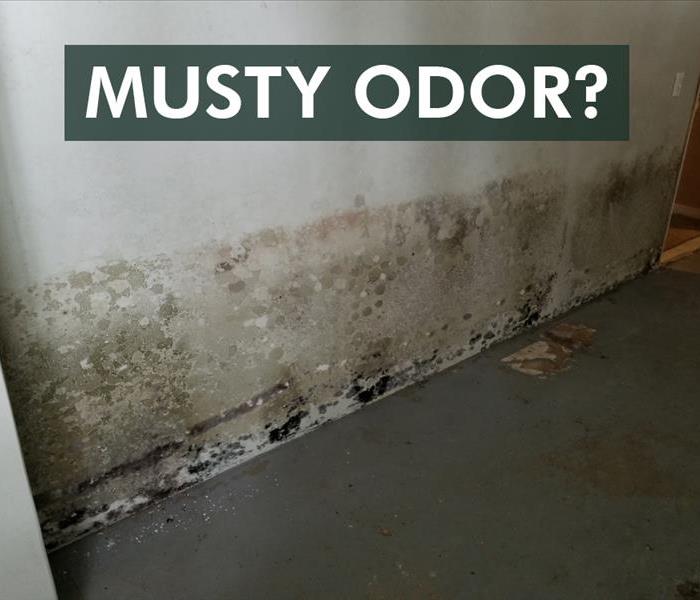3 Key Things To Know About the Smell of Mold
12/10/2020 (Permalink)
Where The Smell Comes From
It’s not easy to describe the smell of mold: It can be sour, earthy, or even more of a camphor smell. The odor that people in San Ysidro, CA, identify as mold is caused by a mycotoxin, a gas-like organic compound that mold releases as it grows. To understand where the smell comes from as well as why it’s so hard to eliminate from a commercial building, it helps to know a little about how mold functions.
1. Where the Smell Comes From
When you see mold growing on a surface, did you know that the fungus is actually consuming and digesting that surface? As long as enough moisture is present, mold can use just about anything as a food source. As it digests the surface material, it emits gas-like compounds called microbial volatile organic compounds. MVOCs are the source of the musty odor we associate with mold.
2. What the Smell Means
Mold only releases MVOCs when it is actively eating and growing. Therefore, when you smell that distinctive mycotoxin odor, that’s a sure sign that mold is eating away at some part of your building. Act quickly to stop the growth and minimize the damage.
3. How To Get Rid of the Smell
To eliminate the smell, you need to first eliminate the source. Cutting off the moisture source can cause mold to dry up and die; however, mold sporulates as it dies, which means that it releases thousands of tiny spores into the air in an attempt to move the colony elsewhere. This is why proper mold remediation is critical. Mold remediation specialists use biocides and other methods to kill active mold growth. They also use advanced air purification techniques and equipment to trap and extract MVOCs and airborne spores to prevent future outbreaks.
That musty mycotoxin smell isn’t pleasant, but it does have one benefit: The smell alerts you that mold is growing nearby so that you can take action to remove it before it causes more damage.






 24/7 Emergency Service
24/7 Emergency Service
